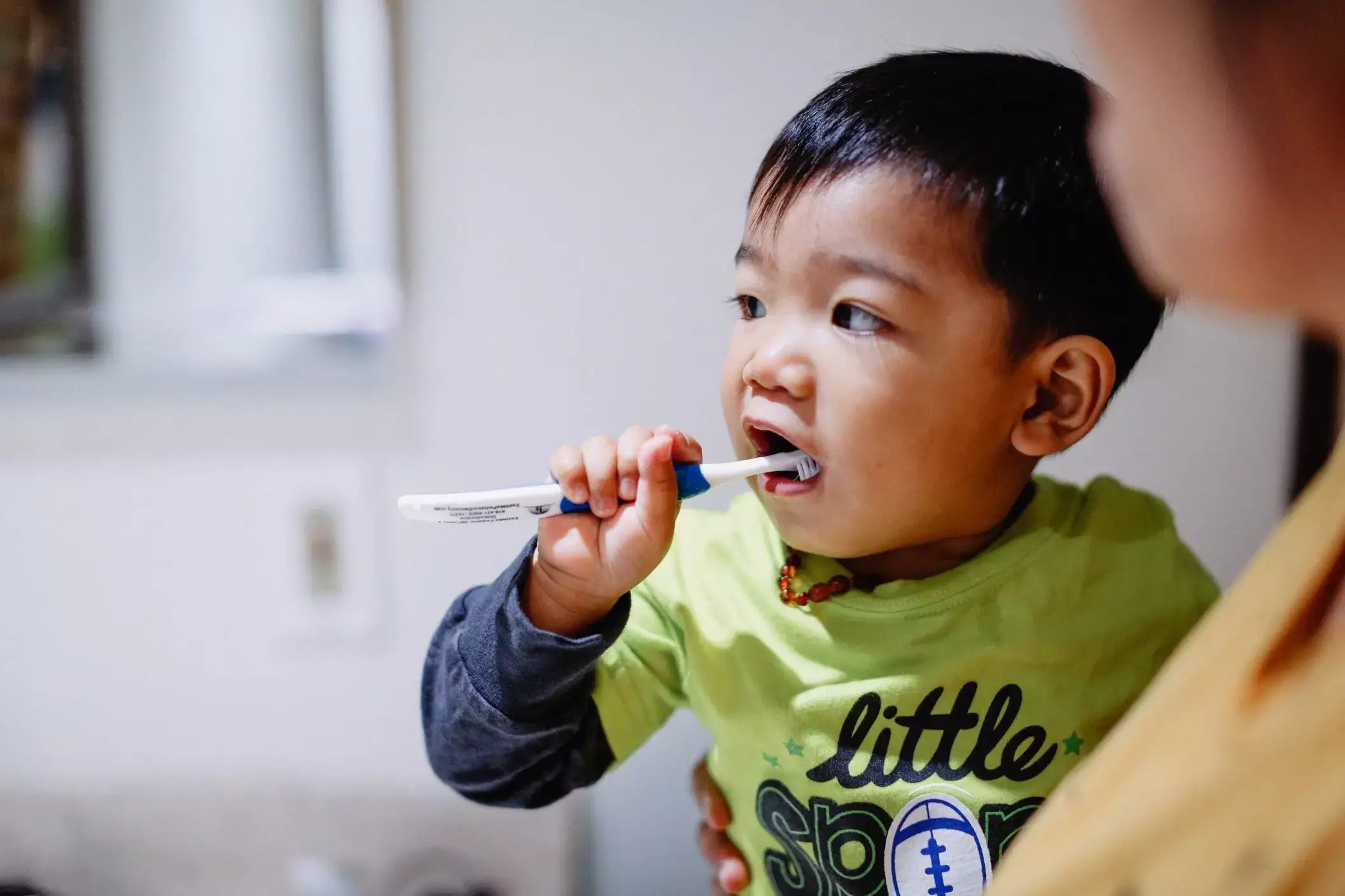As a parent, balancing the many responsibilities of childcare with the importance of good dental hygiene can be daunting. Children often view routines like tooth brushing as an unnecessary chore rather than a healthy habit. It is especially challenging for toddlers; the gleam of a dental office may evoke fear rather than curiosity. However, initiating dental care early can help establish a positive association with oral hygiene and dental visits. According to the American Academy of Pediatric Dentistry, parents should schedule their children’s first dental visit when the first tooth breaks through or by their first birthday. But how can parents ease the transition into this new experience? Here, we explore effective strategies to get toddlers excited about dental health.
Creating a dental hygiene routine can start much earlier than a child’s first birthday. Parents can introduce gentle oral care by cleaning the child’s gums with a soft cloth or infant toothbrush and water. This early practice familiarizes children with having their mouths cleaned and prepares them for the sensation of brushing. As children approach their first year, introducing a non-fluoridated toothpaste during brushing routines can cultivate positive early experiences with oral hygiene. Regular brushing, ideally twice a day for 2-3 minutes, can become part of a consistent daily routine which provides stability that toddlers often crave.
Timing is crucial; scheduling nightly brushing before children become too tired ensures more compliance. Implementing a “tooth-brushing time” ritual can make it part of a soothing nighttime routine. For instance, if bedtime is at 8 p.m., brushing at 7:15 p.m. can help maintain cooperation. Additionally, choosing a flavored toothpaste that appeals to a child’s taste—like bubblegum or chocolate—transforms brushing from a mundane task into an enjoyable activity, paving the way for positive dental experiences in the future.
Before toddlers step into the dentist’s office, it’s essential to demystify the experience. Parents can adopt a “tell, show, do” approach to alleviate fear related to unfamiliar situations. Start by discussing what a dentist does and why visiting is important for healthy teeth. Parents can also read children’s literature about dental visits—these stories often depict friendly and approachable dental professionals, helping to establish a non-threatening image.
Moreover, organizing a preliminary visit to the dental office can provide children with a tangible experience of what to expect. Allowing them to explore the environment, feel instruments, and meet staff for a brief encounter can transform apprehensions into curiosity. Children can also engage in role-play activities with toys or stuffed animals, mimicking a dentist appointment scenario. Role play encourages children to explore their feelings about the visit in a safe context and can build familiarity.
Despite all precautions, it is essential to recognize that apprehensions may still arise during the first dental visit. To offset anxiety, use positive reinforcement strategies. Praising children for their bravery, coupled with small rewards after the visit, can promote excitement around oral health. Items like stickers, additional playtime at the park, or loving encouragement serve as incentives to partake in dental care positively.
Engaging children in decision-making processes—like selecting their own toothbrush or toothpaste flavor—can empower them and foster cherished ownership over their dental hygiene journey.
Nurturing a child’s relationship with dental care begins far earlier than their initial visit to the dentist. Simple daily practices, consistent routines, and positive experiences can cultivate an environment where children view oral hygiene as not only essential but enjoyable. While no amount of preparation can entirely eliminate discomfort, steps taken by parents will foster a sense of security and enthusiasm for maintaining good dental health. In the end, the goal is not merely to visit the dentist but to encourage a lifelong commitment to caring for their smiles.

